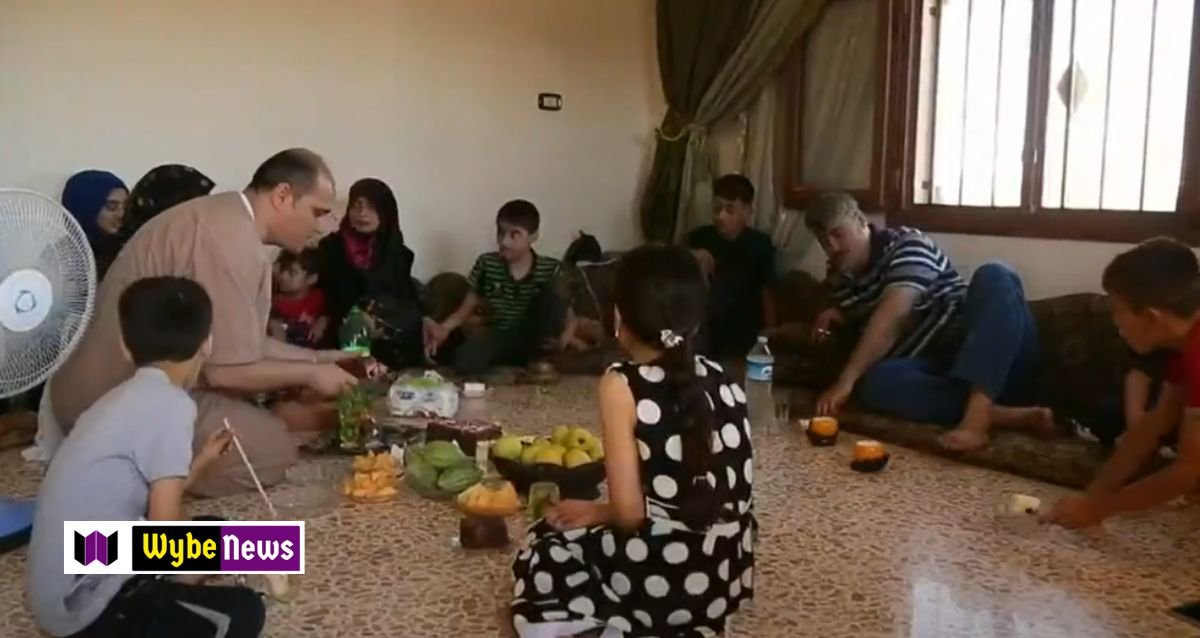Turkey’s Government Urges Calm Amid Violence Against Syrian Refugees

Background of the Incidents
The recent wave of violence against Syrian refugees in Turkey was ignited by a distressing incident in the Melikgazi region of Kayseri. A Syrian man was arrested on charges of sexually abusing a seven-year-old Syrian girl, which triggered widespread outrage among the local Turkish population. This arrest acted as a catalyst, leading to violent riots and significant unrest in the area.
In response to the arrest, Turkish residents in Kayseri expressed their anger by flipping over cars and setting fire to shops run by Syrians. This hostility quickly spread beyond Kayseri to other regions, most notably the southern province of Hatay. Here, tensions escalated further when a Syrian grocery store was deliberately set ablaze, adding to the already volatile situation.
As the violence spread, it left a trail of destruction in its wake. Houses, workplaces, and vehicles owned by Syrian nationals were targeted and damaged. Turkey’s Interior Minister, Ali Yerlikaya, reported significant damage to properties belonging to Syrian refugees, highlighting the extent of the aggression and the serious impact on those affected.
The incidents have underscored the deep-seated tensions between the local Turkish community and the Syrian refugees. The swift escalation of violence following the arrest indicates underlying issues and growing resentment towards the refugee population. This outbreak of violence has not only caused material damage but has also intensified the sense of insecurity and fear among the Syrian community in Turkey.
The Turkish government has urged calm and called for restraint from all sides. Efforts are being made to address the situation and prevent further escalation, but the recent events have starkly revealed the fragile state of relations between the local population and the Syrian refugees. The repercussions of these incidents are likely to be felt for some time, and addressing the root causes of such hostility remains a significant challenge for the Turkish authorities.
Government Response and Arrests
In response to the recent violence against Syrian refugees, the Turkish government has taken a firm stance. Interior Minister Ali Yerlikaya made a public statement condemning the actions, emphasizing the government’s commitment to maintaining order and protecting all residents, including refugees. Yerlikaya reported that 474 individuals were detained following the provocative actions against Syrians, underscoring the government’s swift and decisive measures to address the unrest.
Turkish President Recep Tayyip Erdogan also condemned the violence in no uncertain terms. He criticized opposition parties, accusing them of stoking the unrest and using the situation for political gain. Erdogan’s condemnation extended to specific acts of violence, including the burning of houses, vandalism, and setting streets on fire. He labeled these actions as wholly unacceptable and detrimental to the nation’s social fabric.
President Erdogan called for unity among the Turkish populace, urging citizens to reject xenophobia and hatred against refugees. He highlighted the importance of fostering a peaceful and inclusive society, where all individuals, regardless of their background, can coexist harmoniously. Erdogan’s statements reflect the government’s broader policy of supporting refugees and ensuring their safety within Turkey’s borders.
The Turkish government’s response to the violence against Syrian refugees highlights its commitment to upholding law and order while promoting social cohesion. By condemning the actions and taking concrete steps to address the unrest, the government aims to send a clear message that such behavior will not be tolerated. The detainment of 474 individuals signals a robust approach to law enforcement, aimed at preventing further incidents and safeguarding the well-being of all community members.
Impact on Syrian Refugees
The recent surge in violence against Syrian refugees in Turkey has significantly affected the broader Syrian refugee community, exacerbating existing tensions between Turkish residents and Syrian nationals. With over 3.5 million Syrians residing in Turkey, the country hosts the largest population of Syrian refugees globally. Initially, many of these refugees were welcomed during the peak of the Syrian civil war, under the policy of ‘temporary protection.’ This policy has allowed Syrians to live and work in Turkey, though it does not equate to permanent residency or citizenship for most.
Despite the initial hospitality, the situation has progressively deteriorated, driven by a combination of economic and social factors. The Turkish economy, grappling with soaring inflation and a worsening economic crisis, has seen a rise in anti-refugee sentiment. This sentiment is often fueled by perceptions that refugees are competing for jobs and resources, further straining an already fragile social fabric. The escalation into violence has only deepened the divide, leading to an environment of fear and uncertainty among the Syrian refugee community.
Statistics indicate that while a portion of the Syrian refugee population has managed to obtain Turkish citizenship, the majority still live under temporary protection. This status, though providing some level of security, leaves many in a state of limbo, uncertain about their long-term future in the country. The current climate of hostility has not only threatened their physical safety but also their mental well-being, as they navigate an increasingly hostile environment.
Moreover, the riots and acts of violence have brought to light the precarious nature of their existence in Turkey. Many Syrian refugees, already vulnerable due to their displacement, now face heightened risks. The Turkish government’s call for calm is a crucial step, but addressing the root causes of this violence—economic hardship and social discord—remains imperative to foster a more inclusive and harmonious society for both Turkish residents and Syrian refugees.
Addressing Xenophobia and Promoting Integration
In the face of increasing violence against Syrian refugees, addressing xenophobia is paramount. The Turkish government, along with local communities, must take proactive measures to combat misinformation and hate speech that fuel anti-refugee sentiments. Educational campaigns aimed at dispelling myths about refugees can significantly diminish hostility. By highlighting the shared humanity and potential contributions of refugees, these campaigns foster empathy and understanding.
Successful integration programs offer valuable insights. For instance, community centers providing language classes, vocational training, and cultural exchange activities have proven effective. These initiatives not only equip refugees with essential skills but also facilitate interaction and mutual respect between Turkish citizens and refugees. Programs that involve refugees in local decision-making processes can also enhance their sense of belonging and empowerment.
Recommendations for new policies include the establishment of anti-discrimination laws specifically protecting refugees and migrants. Such legislation must be rigorously enforced to ensure that refugees can live without fear of prejudice. Additionally, creating platforms for dialogue between refugees and host communities can bridge gaps and resolve tensions. Regular community meetings, inclusive events, and joint projects can promote cooperation and peaceful coexistence.
International organizations play a crucial role in supporting Turkey’s efforts. Agencies such as the United Nations High Commissioner for Refugees (UNHCR) and non-governmental organizations can provide financial assistance, technical expertise, and advocacy for refugee rights. Collaborative projects between the Turkish government and these organizations can enhance resource allocation and efficiency in managing the refugee crisis.
Ultimately, fostering social cohesion requires a comprehensive approach involving all stakeholders. Governments, communities, and international bodies must work in tandem to create an inclusive society. By promoting mutual understanding and respect, Turkey can ensure a harmonious environment where both citizens and refugees can thrive together.






